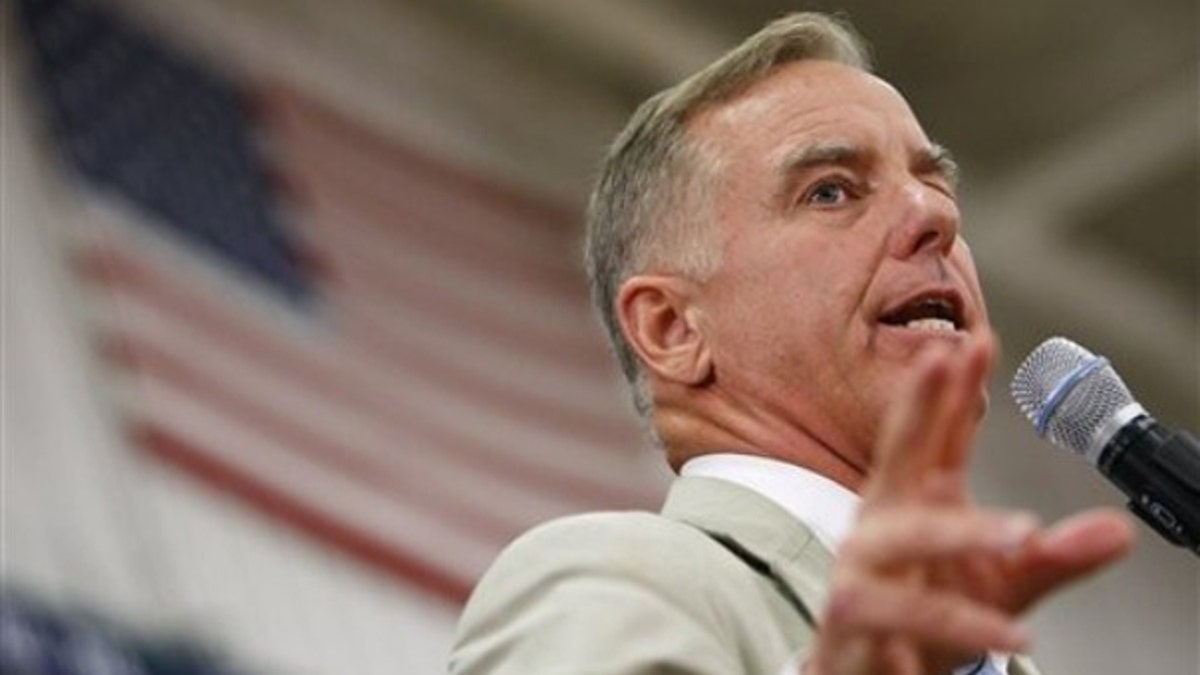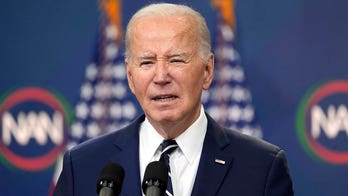
Howard Dean thinks Donald Trump could be a cocaine user. (The Associated Press)
Liberal outrage over the Senate's health care reform bill is reaching a boiling point, with a number of organizations, unions and House Democrats warning that the watered-down version they see creeping toward a vote will not survive in its current form.
The warnings suggest the controversial government-run insurance plan, as well as a proposed expansion of Medicare, could be brought back to the table down the road even though Senate Majority Leader Harry Reid stripped those ideas from his package -- mainly to appease moderates like Connecticut Sen. Joe Lieberman.
Former Democratic Party Chairman Howard Dean has been the most vocal opponent of the Senate bill, calling for the Senate to kill the package and writing in a column Thursday that it would "do more harm than good" for the country.
"I know health reform when I see it, and there isn't much left in the Senate bill," he wrote in an opinion article published in the Washington Post.
But the former Vermont governor, who has no vote in Congress, isn't the only one with a gripe.
House Majority Leader Steny Hoyer complained Tuesday about the "psychology of one" in the Senate -- a not-so-veiled shot at Lieberman. He said the House would not rubber stamp the Senate bill once it returns to his chamber without changes.
"That's not going to happen," he said. "There are significant differences."
Rep. Anthony Weiner, D-N.Y., who has become somewhat of a health care reform spokesman for the liberals in his party, has said his colleagues are reaching a "tipping point" and a "breaking point" in terms of the concessions being made on the Senate side.
"The insurance lobby is taking over," Judiciary Committee Chairman John Conyers, D-Mich., was quoted as saying in Roll Call.
While Senate liberals are mostly expected to approve their bill despite misgivings, House liberals don't seem to be quite so agreeable. Influential groups like the Service Employees International Union are now urging their Capitol Hill allies to stand up against the Senate version. SEIU President Andy Stern wrote in a letter to members Thursday that it's time to "fight like hell" for "meaningful reform."
House Speaker Nancy Pelosi declined to show her hand on the matter Wednesday, telling reporters that she won't make a call on the Senate bill until she sees it. She suggested she's open to compromise.
"We do know that, between the two bills, we have the makings of a ... big difference for the American people," she said. "And our members are very enthusiastic about our House bill, and we want to defend our position. At some point, though, the legislative process will say that they have to yield on things and we have to yield on things."
Still, the protests from Dean and others seem to have gotten under the Obama administration's skin, with a health care bill seemingly so close to passage. The administration has spent most of the health care debate battling Republicans' accusations that the bill will drive up costs for individuals and the government, and trying to win over skeptical moderates.
After Dean called the bill an "insurance company's dream," White House Press Secretary Robert Gibbs said: "I don't think the insurance companies have gotten the memo." He said Dean's claims about how limited the health care benefits would be for average Americans "quite simply weren't true."
Gibbs even reached back to Dean's failed presidential bid in 2004, when Dean made health care legislation reform a central part of his campaign, and pointed out that the current plan by Obama conquers obstacles Dean's plan could not.
"There's two differences in what Dr. Dean was doing in 2004 and what President Obama is doing in 2009," Gibbs said. "One, more people are uninsured and more people are losing their coverage because people can't afford it. Secondly, we actually deal with costs."
Gibbs compared Dean with members of the Senate and his own party who support the current Senate bill, even with compromises.
"Understand, Senator (Tom) Harkin, who shares many of the political views that Howard Dean has, supports the bill -- Sherrod Brown, many other progressives in the caucus ... because they understand that passing a bill covering 30 million Americans that don't have health insurance is a giant step forward," Gibbs said.
Republicans, who are nearly unified against the bill, seem to be taking a dose of pleasure from the intra-party feuding.
Sen. John McCain, R-Ariz., said on the Senate floor Thursday that he's in "complete agreement" with Dean.
"You know if you live long enough all things can happen," he said. "I now find myself in complete agreement with Dr. Howard Dean who says we should stop this bill in its tracks, we should go back to the beginning and have an overall bipartisan agreement. Dr. Dean, I am with you."




